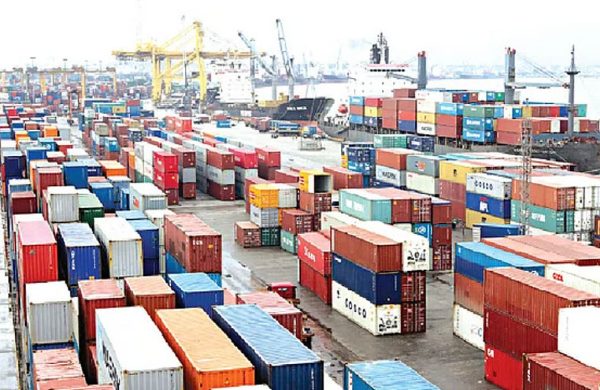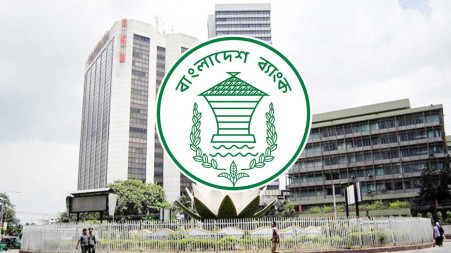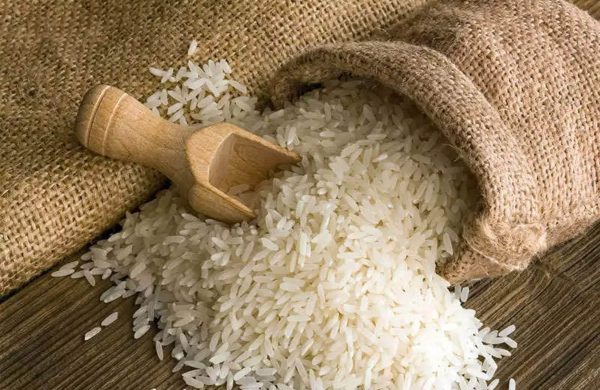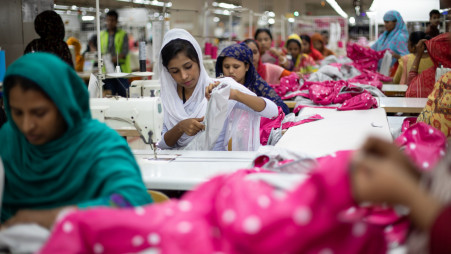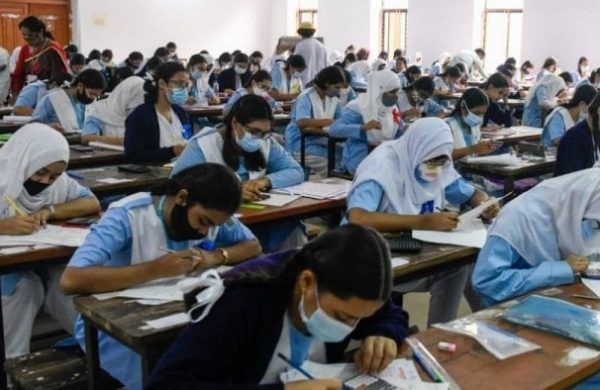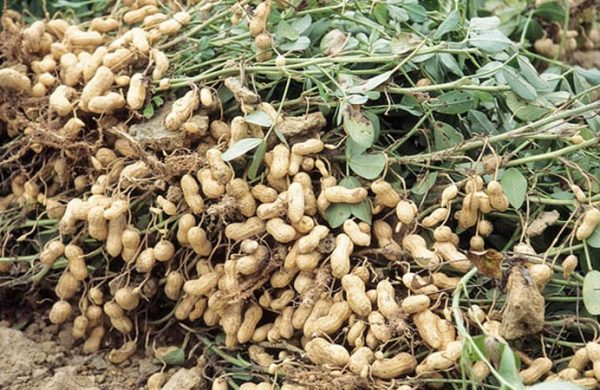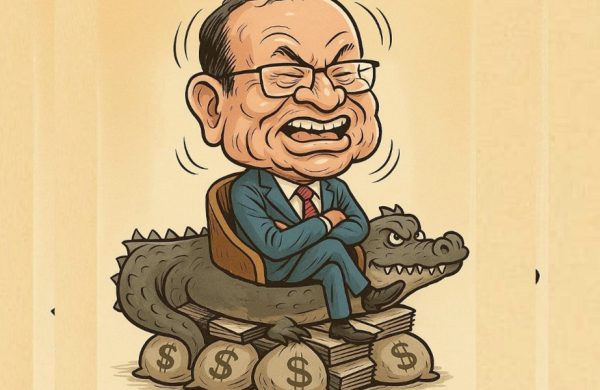Record production, but why the rice prices still out of reach?
- Update Time : Sunday, July 28, 2024

Experts blame this price hike on manipulation by millers and businessmen
TDS Desk:
Despite a bumper production of Boro paddy this year, rice prices have suddenly gone up in the capital’s kitchen markets.
The prices of all varieties of rice have increased by Tk3-4 per kilogram within the last couple of weeks, further squeezing consumers who are already grappling with rising prices of essential commodities like eggs, potatoes, lentils, and vegetables.
Shahzahan Talukder of Mukta Rice Agency, a wholesaler at Karwan Bazar, said that most rice prices have been hiked by about Tk100-150 per 50-kg sack by millers over the last couple of weeks despite the bumper harvest of Boro paddy this year.
Millers are raising the price of rice, claiming that the price of paddy has gone up, he said, adding, “As a result, the retail price of rice has increased by Tk3-4 per kg.”
Experts blame this price hike on manipulation by millers and businessmen who are now controlling the market, not the farmers who have already sold their harvest.
RECORD RICE PRODUCTION
The country registered a three million-tonne surge in rice production in the just concluded fiscal year 2023-24 compared to the previous year.
The total rice production reached a record 42.04 million tonnes in FY24, up 2.939 million tonnes from 39.10 million tonnes produced in the year before, according to the Department of Agriculture Extension (DAE).
In the Boro season this year, the production was 22.41 million tonnes against the target of 22.26 million tonnes.
However, consumers are not benefiting from the bumper Boro production due to some unscrupulous traders and businessmen.
CONTROL BY BUSINESSMEN, MIDDLEMEN
Dr Jahangir Alam Khan, an agro-economist and researcher, told that paddy and rice are now controlled by millers, businessmen, corporate traders, and middlemen.
“Farmers sold their Boro paddy from 15 May to 15 June of the year, while 90% of harvesting was completed by 15 May. Since farmers don’t have paddy, it is now controlled by businessmen,” he said. “These businessmen are manipulating the market and increasing rice prices.”
Dr Khan noted that during the harvesting period this year, farmers sold their paddy at Tk900-1,000 per maund (40kg), but the government estimated the price to be Tk1,200 per maund. He suggested that the government should intervene in the market, increase monitoring, and boost the supply of rice through its initiatives.
PRICE INCREASES IN RETAIL MARKET
During a visit to a grocery shop at Mirpur 13 in the capital, shop owner Md Jahangir Alam said the price of the miniket variety increased by Tk100 to Tk3,600 per 50kg sack. The price of the BR-28 variety rose by Tk60 to Tk2,700 per sack till Tuesday at the wholesale shops in Mirpur and Kafrul.
Meanwhile, the Rashid’s miniket was being sold at Tk3,400 per sack, while Teer’s miniket was at Tk3,350 per sack, and BR-20 at Tk2,650 per sack, according to Shahzahan Talukder of Mukta Rice Agency at Karwan Bazar.
Visiting the Chandpur Rice Agency in Mirpur 10, observed miniket rice of the Fresh brand being sold at Tk1,730 per 25kg sack, and BR 28 rice of the Momena brand at Tk2,750 per 50kg sack. The shop owner mentioned that millers are increasing rice prices by Tk100-300 per sack due to the instability.
RISING COSTS AND RETAIL PRICES
Farhad Hossain Chakdar, General Secretary of the District Rice Mill Owners Association Naogaon, told Daily Sun that the price of paddy has increased for this rice price increase. “The price of Jira and Katari paddy is now Tk1,400-1,450 per 38kg. At the husking mill, 60 kg of paddy husking costs Tk100, and we got 40 kg of rice after husking the amount of paddy. The milling cost of 60 kg of paddy is Tk120 at the auto rice mill,” he said.
According to statistics, the price of 1kg fine-quality miniket rice would be Tk57.76 per kg at the husking mill and Tk58.26 per kg at the auto rice mill. The fine quality miniket rice was selling for Tk68-75 at different retail shops in the capital. So, the price of fine quality rice increased by around Tk10 per kg from millers to retailers.
EXCESSIVE PROFITS BY MILLERS, RETAILERS
Prof ASM Golam Hafiz, a renowned farm economist, told that Tk10 profit from one kg of rice is too much. “The control of the rice market goes into the hands of corporate traders and millers. The government should introduce alternative mechanisms. They can monitor the market, purchase a large amount of paddy, and release it to the market,” he said.
“When the production of rice increases, the price may go down in the retail market, but it is not happening. So that someone may hoard the rice, the millers are doing mechanisms,” said the economist.
FLOODS AND RAINFALL IMPACT
Nizam Uddin, general secretary of the Babubazar Rice Traders Association, told that the price of paddy has increased due to floods and torrential rainfall, causing instability in the rice market. There would be no further increase in rice prices if the floods do not persist, he added.
Wahida Akter, secretary to the agriculture ministry, stated that the rice production this year was higher than the demand, so there is no rice crisis in the country.
STUDY ON PROFITS BY MILLERS
Earlier in 2022, a study by the Bangladesh Rice Research Institute (BRRI) disclosed that rice mill owners profit Tk8.08-13.67 per kg from rice and its by-products. Excessive profit by rice millers and retailers is the reason for the price hike of rice in the country despite a surplus production, according to the study.
Rice millers acquired the highest profit, and rice retailers were in the second position as profit gainers. Other stakeholders in the rice value chain—faria (middlemen), paddy aratdar (wholesalers), and rice aratdar—are incurring normal profits. Value chain analysis of bold grain rice shows that rice millers make a profit of Tk8.08 after selling per kg of rice, retailers make a profit of Tk2.11, paddy aratdar make a profit of Tk1.72, farmers make a profit of Tk1.12, faria make a profit of Tk0.50 and rice aratdar make a profit of Tk0.40.
Rice millers make a profit of Tk9.91 after selling per kg of medium grain rice, rice retailers make a profit of Tk2.80, farmers make a profit of Tk2.99, paddy aratdars make a profit of Tk1.77, rice aratdars make a profit of Tk0.45 and farias make a profit of Tk0.42.
Rice millers make a profit of Tk13.67 after selling per kg of fine grain rice; rice retailers make a profit of Tk4.89; farmers make a profit of Tk4.94; paddy aratdars make a profit of Tk2.02; rice aratdars make a profit of Tk0.68; and farias make a profit of Tk0.53, according to the study. Rice millers and retailers are gaining supernormal profit, defined as extra profit, after selling fine grain rice.
NEED FOR GOVERNMENT INTERVENTION
Experts believe that the government’s intervention to curb the excessive profit margins of millers and retailers and stricter market monitoring are crucial to bringing down rice prices and providing relief to consumers.


